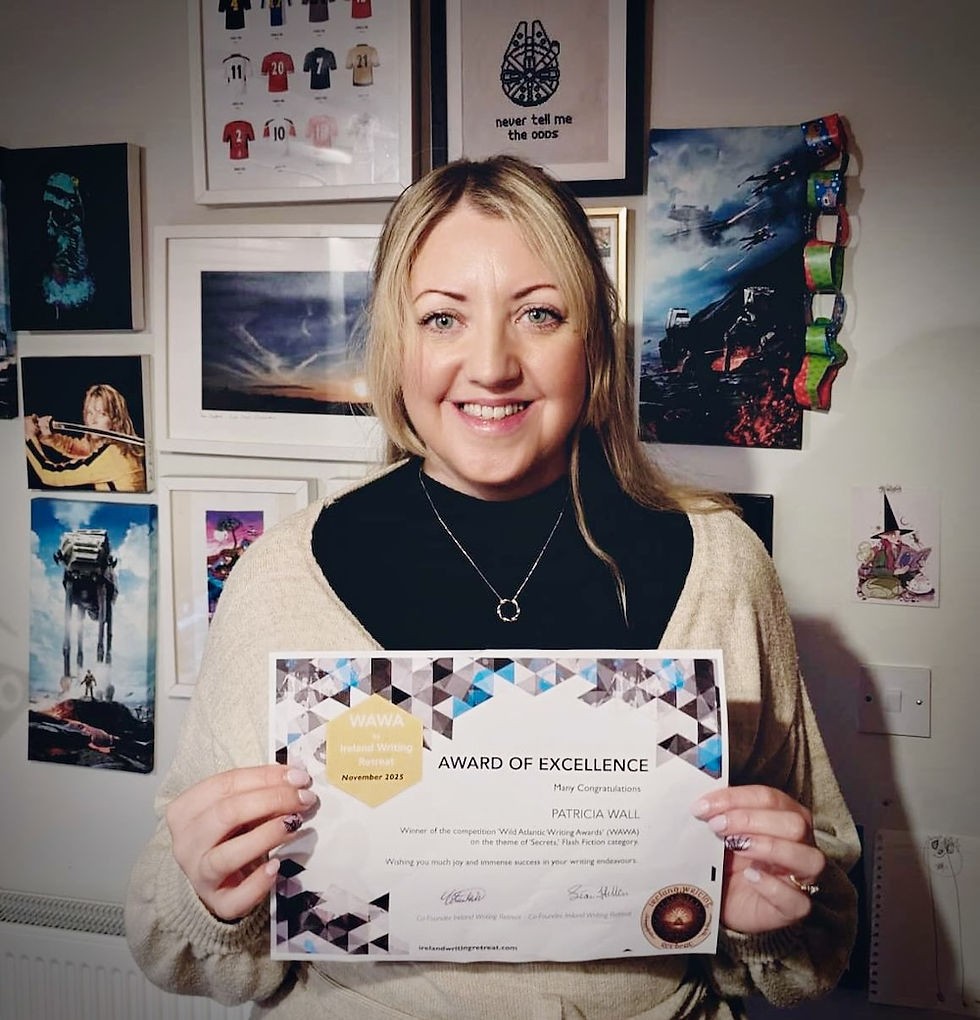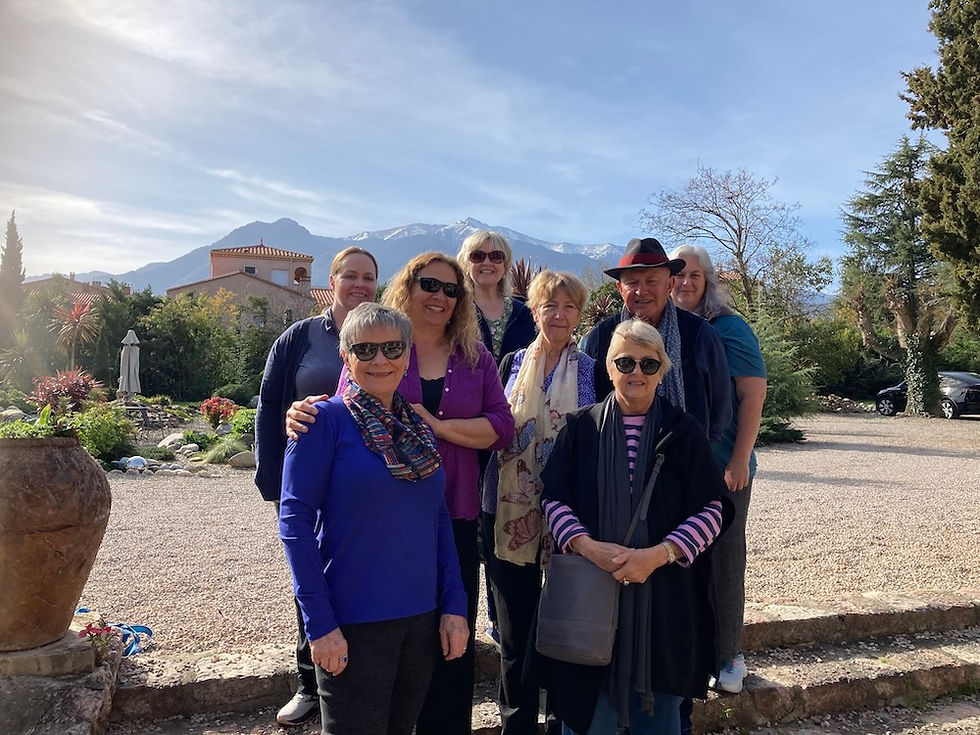Love Story - Creative Nonfiction WAWA Winner and Finalists are…
- columbiahillen

- Jun 14, 2021
- 3 min read
Updated: Jun 30, 2021
Cherished memories.
This phrase sums up many of the stories penned by writers for our recent ‘Wild Atlantic Writing Awards’ (WAWA) creative non-fiction competition on the theme of Love.
Those memories, ranging from the heart-breaking to the humorous, reflected the sheer power and depth of feelings that arise in all of us, for a sibling, a partner, a child or a loyal pet.
It has to be said: after reading some of the stories, there was barely a dry eye in the house.

That’s because writers delved courageously into their psyche, bravely exploring their emotions in response to pivotal moments in their lives, whether they be the sheer joy of being a parent, the overwhelming grief caused by loss or even overcoming the challenges of being bi-gender.
The stories showed how love can be both rewarding and demanding, uplifting and sad. But ultimately, immensely enduring.
Many were poignant reminders of the passing of time, about the death of a loved one, either through physical illness or, equally devastating, from dementia.
But there was also light-heartedness, including the witty thoughts of a woman preparing for childbirth and the charming awkwardness of a first date as observed through the minds of both people.

The stories submitted for this, the third edition of WAWA, also indicated how we write about love may depend on how old we are, younger writers with a mixture of anxiety and hope, older ones with either a sense of reflective contentment or a yearning for nostalgia.
Ultimately, writing well about love requires setting aside our egos and being as vulnerable on the page as we are in revealing ourselves to those we hope will return our feelings. That means exposing our flaws and weaknesses and trusting we will be more appealing, not less, for having done so.
In terms of writing style, Daniel Jones, author of ‘Love Illuminated: Exploring Life’s Most Mystifying Subject (With the Help of 50,000 Strangers), put it best when he said: “Writing well about love requires the same virtues that define a good relationship: honesty, generosity, open-mindedness, curiosity, humor and self-deprecation. Bad writing about love suffers from the same flaws that define a bad relationship: dishonesty, withholding, defensiveness, blame, pettiness and egotism.”

Finding the right words to capture intense feelings is never easy, but we should all try to avoid overused terms such as soul mate, gorgeous, crushed, heart pounding, or ‘I’ll never forget’ and ‘I’ll always remember.’ In many ways, the classic piece of writing advice, ‘show don’t tell’ is more applicable to describing Love than any other subject.
And good news to ponder.
While writing in a deeply personal way about a subject such as Love is a major challenge, doing so provides immense health benefits. Numerous studies have shown that writing introspectively can lead to lowered blood pressure, improved liver function and even the accelerated healing of postoperative wounds.
So continue delving deep into your soul. Sparkling gems of prose await you there, often in the most unexpected of places.
And now, the finalists and ultimate winner of the ’WAWA Love’ for creative nonfiction:

Our heartiest congratulations and 500 euro in prize money goes to the competition winner, Catherine Doris, for her deeply moving story ‘The Past Present.’
Our congratulations also go to the other excellent writers among the Top Ten finalists, all of whom receive special certificates of recognition from ‘Ireland Writing Retreat.’
They include (in alphabetical order):
John Backman for ‘Bigender vs. Buddha,’ Veronique Bequin for ‘Teatro Real,’ Monica Clarke for 'Fear,' Tracy Jones for ‘Foster Carer’s Log,’ John McCann for ‘Lola,’ Abby McNab Crain for ‘Rent Whole,’ Andrea McNicoll for ‘Changing Beds,’ Emma M. Murray for 'One More Song' and Nicole Scobie for ‘The First Date, My Version VS His.’
With authors’ permission, the Top Ten stories will be published on the ‘Ireland Writing Retreat’ website over the coming months.








Comments